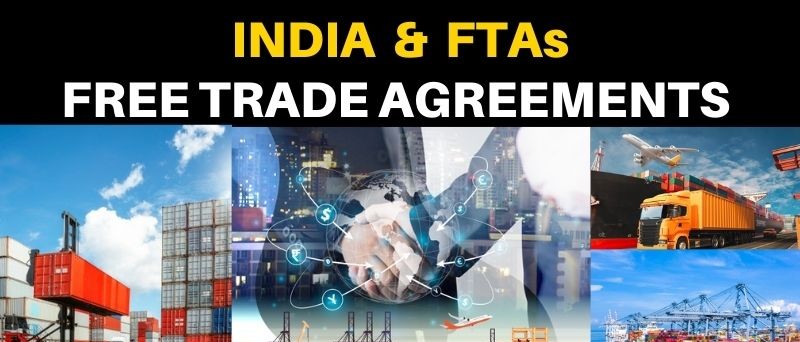
Follow WOWNEWS 24x7 on:

India’s free trade agreement (FTA) landscape is undergoing a seismic shift. What was once a domain dominated by tariffs and quotas is now a sprawling negotiation table that includes labor rights, environmental standards, intellectual property, and digital governance. Commerce Secretary Sunil Barthwal, speaking at a recent event hosted by the Centre for Trade and Investment Law (CTIL), highlighted how non-trade issues are increasingly shaping the contours of India’s FTAs, making them more intricate and demanding than ever before.
Here’s a detailed breakdown of the evolving FTA terrain and what it means for India’s global trade strategy.
1. Key highlights from the Commerce Secretary’s remarks
- FTAs are no longer limited to merchandise and services; they now include cross-sectoral issues such as labor, environment, and government procurement
- The India-UK FTA is cited as a gold standard, incorporating commitments on labor and environmental protections for the first time
- Ongoing negotiations with the European Union are proving to be even more complex, with new chapters on non-services and regulatory cooperation
- India is actively reviewing its negotiation frameworks to better address these emerging challenges
2. Non-trade issues redefining FTA negotiations
- Labor standards: India has begun accepting commitments on workplace safety, wage transparency, and gender equity in trade deals
- Environmental clauses: FTAs now include sustainability benchmarks, carbon emission disclosures, and green technology cooperation
- Intellectual property rights (IPR): Negotiations increasingly cover patent protections, copyright enforcement, and digital IP governance
- Government procurement: India is engaging in talks around transparency in public sector contracts and fair bidding practices
- Digital trade and e-commerce: New chapters focus on data localization, cross-border data flows, and cybersecurity protocols
3. Strategic implications for India
- India’s willingness to engage on non-trade issues signals a shift toward more holistic and globally aligned trade policies
- These expanded commitments help India position itself as a responsible and forward-looking trade partner, especially with developed economies
- However, they also require significant domestic reforms and capacity building across ministries and regulatory bodies
- The government is working to build cross-disciplinary expertise to handle negotiations that span law, environment, labor, and tech
4. Complexity in current negotiations
- India-EU FTA: Discussions include non-services sectors, regulatory alignment, and dispute resolution mechanisms
- India-UK FTA: Already signed, it includes chapters on innovation, good regulatory practices, and digital governance
- India-Australia CECA: Talks are underway to expand the scope beyond goods and services to include investment and sustainability
- India-UAE CEPA: The agreement has boosted bilateral trade, and future updates may include climate and labor clauses
5. Challenges and opportunities
- Businesses often lose interest when negotiations drag on due to the complexity of non-trade issues
- To counter this, the Commerce Ministry is exploring phased FTAs or early harvest deals to deliver quicker benefits
- India must also ensure that commitments made in FTAs align with domestic laws and do not compromise sovereignty
- On the flip side, these expanded FTAs can unlock access to high-value markets and foster innovation partnerships
6. What’s next for India’s trade diplomacy
- India is currently negotiating FTAs with Canada, the EU, and several Indo-Pacific nations
- Latin American countries like Peru and Chile have expressed interest in signing FTAs with India
- The government is prioritizing strategic sectors such as critical minerals, clean energy, and digital infrastructure in future deals
- A new generation of FTAs may also include clauses on AI governance, ethical tech, and climate finance
As India steps into a more complex and interconnected trade world, its FTAs are evolving from tariff-cutting tools to instruments of global cooperation. The inclusion of non-trade issues marks a new chapter—one that demands agility, expertise, and a long-term vision.
Sources: Business Standard, Economic Times, India Briefing


